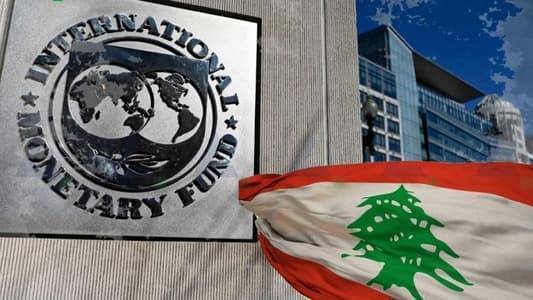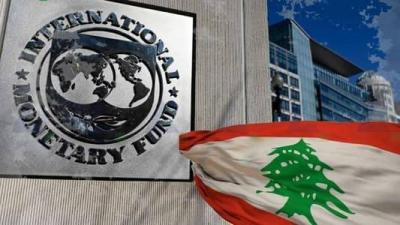Former Minister Raed Khoury emphasizes that "the rights of depositors are sacred in any plan to address the financial and economic crisis in Lebanon." He urges the International Monetary Fund (IMF) to consider engaging with Lebanon "out of the box," proposing a plan that involves private sector participation in state assets.
Khoury, returning from a visit to the United States where he met with officials from the U.S. administration and executives from the IMF and World Bank who are monitoring the Lebanese case, explained his proposal through the "Akhbar Al-Yawm" agency. He notes that the IMF expressed dissatisfaction with the Lebanese authorities' failure to implement its demands. The IMF feels that the preliminary agreement signed last April resembles a "time-buying exercise," as it has requested several laws but only one or two have been approved so far, with no significant progress made.
Khoury reveals that the IMF is not considering sending a delegation to Lebanon before March unless the desired progress is achieved. He stresses that without an agreement with the IMF, the country cannot return to the global financial map. He explains that when any country announces its inability to pay debts or declares bankruptcy, all countries delegate the IMF to negotiate with that country to establish a financial program until its situation stabilizes. Once that occurs, the IMF’s endorsement enables the country to access loans, aid, or investments from other nations; thus, Lebanon has no alternative but to pursue this path.
Regarding discussions he had with IMF executives during his visit to Washington, Khoury stated that the IMF considers Lebanon a unique case that differs from other countries that have resolved their crises. He pointed out that the IMF has requested the cancellation of deposits exceeding $100,000 (something that cannot be accepted by either citizens or lawmakers) while simultaneously rejecting the sale of state assets. This led Khoury to call for a reconsideration of the situation not from a punitive perspective but through "CREATION OF VALUE."
In this context, Khoury clarifies that if state assets are valued at $20 billion when held by the state, the entry of the private sector—through transparency—could boost their value to $60 billion. He emphasizes that he does not rely on state plans but on the IMF enforcing this demand within its program for Lebanon, prompting its implementation.
Khoury believes that the IMF's current program will not benefit Lebanon and highlights that involving the private sector in state properties, particularly through management, would be positive. The more the value of the assets increases, the greater the returns that can go to a fund dedicated to repaying depositors. He insists that if the private sector revives any state facility, its value will multiply. In the financial and business realm, there is a significant difference between failing management and successful management across sectors.
He continues: if the state owns 60% of facilities valued at $60 billion, isn’t that better than owning those facilities valued at no more than $20 billion? This way, the state benefits while depositors gain, creating a movement in the country that attracts investment and generates job opportunities. Eventually, growth will be realized, and the taxes from this economic activity will fill the state treasury, benefiting it twice: from the increased asset value and from taxes collected.
If this project yields profits, the state can relinquish part of the shares to the private sector; if the targeted profit is not achieved, everything remains with the state.
Khoury sees such a step as satisfying the IMF since it elevates the value of state assets, even if its share decreases, thereby opening new horizons for future generations, especially in providing job opportunities and securing currently lacking essential services, leading to a WIN-WIN SITUATION.
On this proposal, Khoury's response regarding the IMF's view was that it does not operate this way and that the Lebanese themselves must implement such a suggestion. He proposed that IMF officials collaborate with investment banks capable of innovating and creating opportunities. He noted that even if losses are distributed, it won't resolve the issue without a vision and plans for recovery.
He concludes by stating that the system relied on maintaining an exchange rate and attracting investments in the form of deposits, but given the current situation, is there an alternative system? The core issue with the IMF is its call to raise taxes; however, without economic growth, it would be like licking a radiator. In conclusion, the IMF is not moving towards an economic dimension but rather a budget dimension, indicating a limited perspective in addressing crises.




